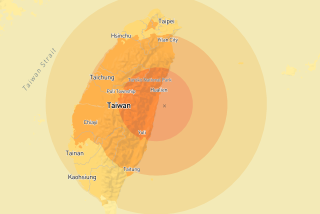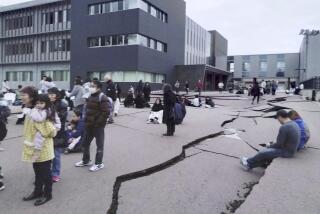Japan nuclear radiation: Will travel insurance cover you?
With some of Japan’s nuclear reactors emitting radiation after damage from last week’s devastating earthquake and tsunami, travelers may wonder: Will their travel insurance policy cover them if they cancel trips because of radiation contamination in the region?
Insurers are already grappling with this question, with different outcomes. But several I contacted this week agreed on one point: Unless you had added a so-called cancel-for-any-reason rider to your policy, you won’t be reimbursed for your trip deposits and other costs if you cancel your Japan trip solely because you worry that you might encounter radiation—or any other problem, for that matter.
That’s because insurance covers events, not states of mind. If on the other hand, your hotel is an area that has been evacuated because of radiation concerns, or has been shut down because of those concerns, there’s a chance you might be able to collect on the policy. (So far this question, thankfully, seems mostly hypothetical. None of the insurers I spoke with reported receiving such a claim.)
Photos: Earthquake and nuclear crisis in Japan
Why just a chance of collecting? Because insurance policies generally don’t cover radiation-related events, the experts told me.
“I am not aware of any travel insurance plan that includes the potential for radiation or nuclear meltdown, as some have put it, as a covered reason for cancellation,” said Carol Mueller, spokeswoman for Travel Guard North America, an insurance company based in Stevens Point, Wis.
For instance, CSA Travel Protection lists “nuclear reaction, radiation or radioactive contamination” as a general exclusion in at least one of its policies, said Kathy Townend, marketing manager for the San Diego-based insurance company. (Wording may vary by policy.)
Nonetheless, Townend added: “We’re talking to our underwriter to see what kind of decision would be made” in the event of such a claim in Japan.
One factor that may work in policy-holders’ favor is that the damage to Japan’s nuclear reactors was caused by a combination of an earthquake and a tsunami, which are natural disasters that travel insurance typically covers.
In fact, Sheri Machat, senior vice president of sales and marketing for MH Ross Travel Insurance Services Inc., based in Kansas City, Mo., said her company might cover radiation-related claims, viewing them as a byproduct of these disasters.
“If a hotel is shut down in Japan because of radiation, we would consider it under ‘destination being rendered uninhabitable by fire, flood, burglary, or other natural disaster within 10 days of departure,’” she said.
Dan Durazo, spokesman for Access America, a travel insurance company based in Richmond, Va., said given that policies typically exclude radiation, “it’s hard to get a handle on what that situation is. We’ll adjudicate those one on one…If your destination has become uninhabitable, it might be covered.”
Just don’t expect to be covered for radiation, or any other travel problem stemming from Japan’s earthquake, if you bought your travel insurance policy on or after March 11, when the quake hit the Asian nation. This wording, from Access America’s website, is typical of the alerts being issued by insurers:
“As of March 11, 2011, the earthquake and tsunami that have affected Japan is a known/foreseeable event for travel insurance purposes. Policies purchased on or after March 11, 2011 do not cover losses related to this event.”
More to Read
Sign up for The Wild
We’ll help you find the best places to hike, bike and run, as well as the perfect silent spots for meditation and yoga.
You may occasionally receive promotional content from the Los Angeles Times.






